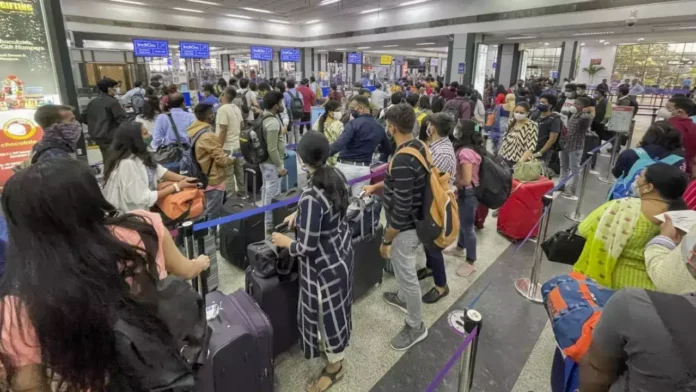In a landmark move, the Indian government has proposed the Immigration and Foreigners Bill 2025, introducing the strictest-ever border control regulations. The bill aims to strengthen national security, curb illegal immigration, and simplify outdated laws, replacing colonial-era regulations with a modernized framework.
One of the biggest changes? Immigration officers now hold the final authority to deny entry to non-citizens, giving them unparalleled decision-making power in border control. The bill also introduces harsh penalties for illegal immigration, while a controversial “Burden of Proof” clause shifts the responsibility of proving nationality onto individuals.
Immigration Officers Get Full Authority at Borders
For the first time, immigration officers legally hold the ultimate power to deny entry to any non-citizen who is deemed:
- A threat to India’s sovereignty or national security
- A risk to diplomatic relations with foreign governments
- In violation of any immigration rule
Previously, such decisions were often informal and case-by-case, but now, the bill solidifies this authority in law, ensuring that immigration officials can take immediate action without higher approvals.
Tougher Penalties for Illegal Immigration
The bill enforces strict legal consequences for those who violate immigration laws:
- Entering without a valid passport → Up to 5 years in prison or ₹5 lakh fine
- Forgery of documents → Up to 7 years in prison and ₹10 lakh fine
- Overstaying visas → Up to 3 years in prison and ₹3 lakh fine
Additionally, educational institutions, hospitals, and employers that accept foreign nationals without proper verification will also face heavy penalties, ensuring that every foreign applicant’s credentials are rigorously checked before entry.
Outdated Colonial-Era Laws Repealed
The bill replaces two old wartime laws, the Foreigners Act (1946) and the Registration of Foreigners Act (1939), which were implemented in a pre-independence era with outdated regulations. These acts created legal confusion and inefficiency, with overlapping policies on visas, deportation, and refugee status.
The Immigration and Foreigners Bill, 2025, creates a single, clear legal framework that modernizes India’s approach to border security and immigration enforcement.
“Burden of Proof” Clause Sparks Debate
A controversial aspect of the bill is the “Burden of Proof” clause, which requires any individual accused of being a foreigner to prove their Indian nationality. Critics argue that:
- It could lead to wrongful legal cases against marginalized communities, refugees, and long-term undocumented residents.
- It might cause legal disputes, especially in regions with complex migration patterns, such as the Northeast and border states.
However, supporters claim that the rule is essential for preventing espionage, infiltration, and unlawful residency, ensuring national security is not compromised.
Bureau of Immigration Gets More Power
The Bureau of Immigration (BoI), which previously operated under fragmented legal policies, will now have expanded authority to:
- Monitor visa fraud and overstays more efficiently
- Enforce deportation orders faster
- Coordinate better with intelligence agencies to track high-risk foreign nationals
The bill enhances the Bureau’s legal standing, making it a central force in India’s immigration control system.
With this bill, India is set to have one of the toughest immigration laws in the world, ensuring border security remains a national priority. However, the legal and human rights implications of these new measures remain a subject of debate.








